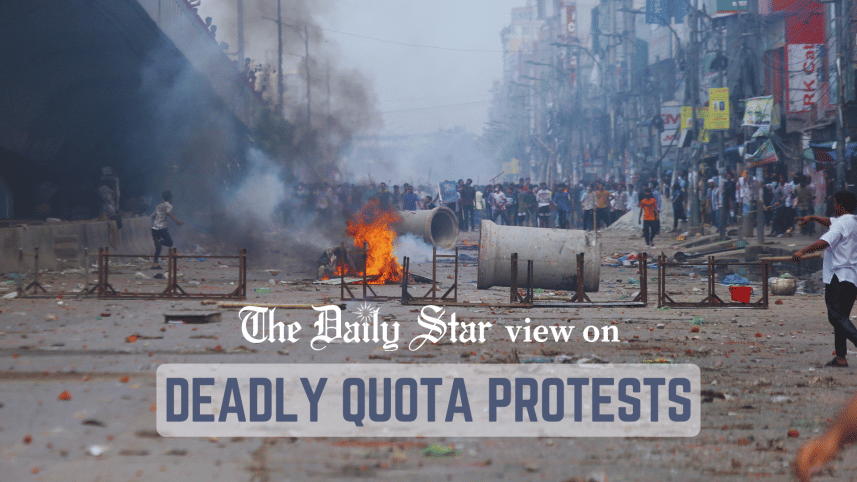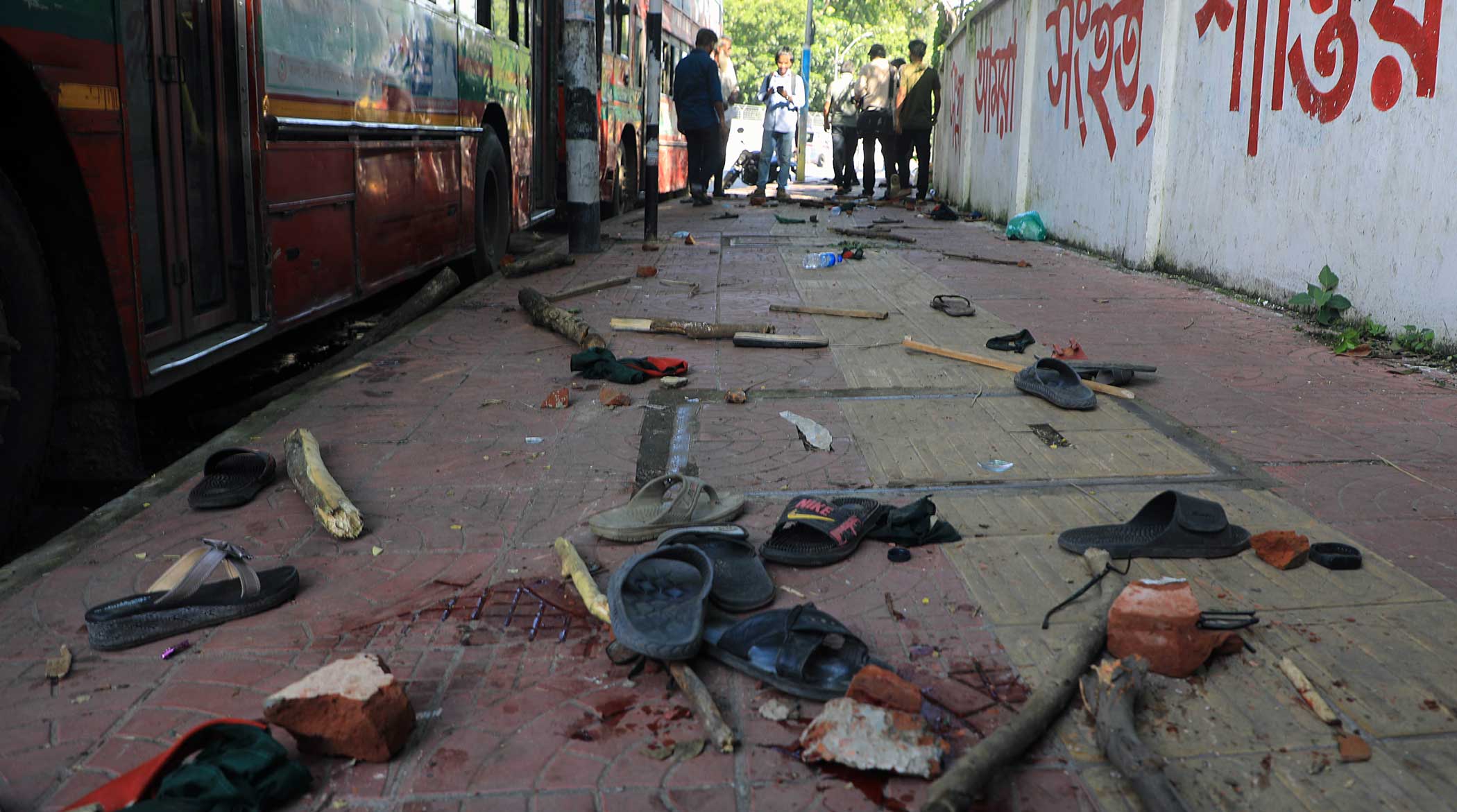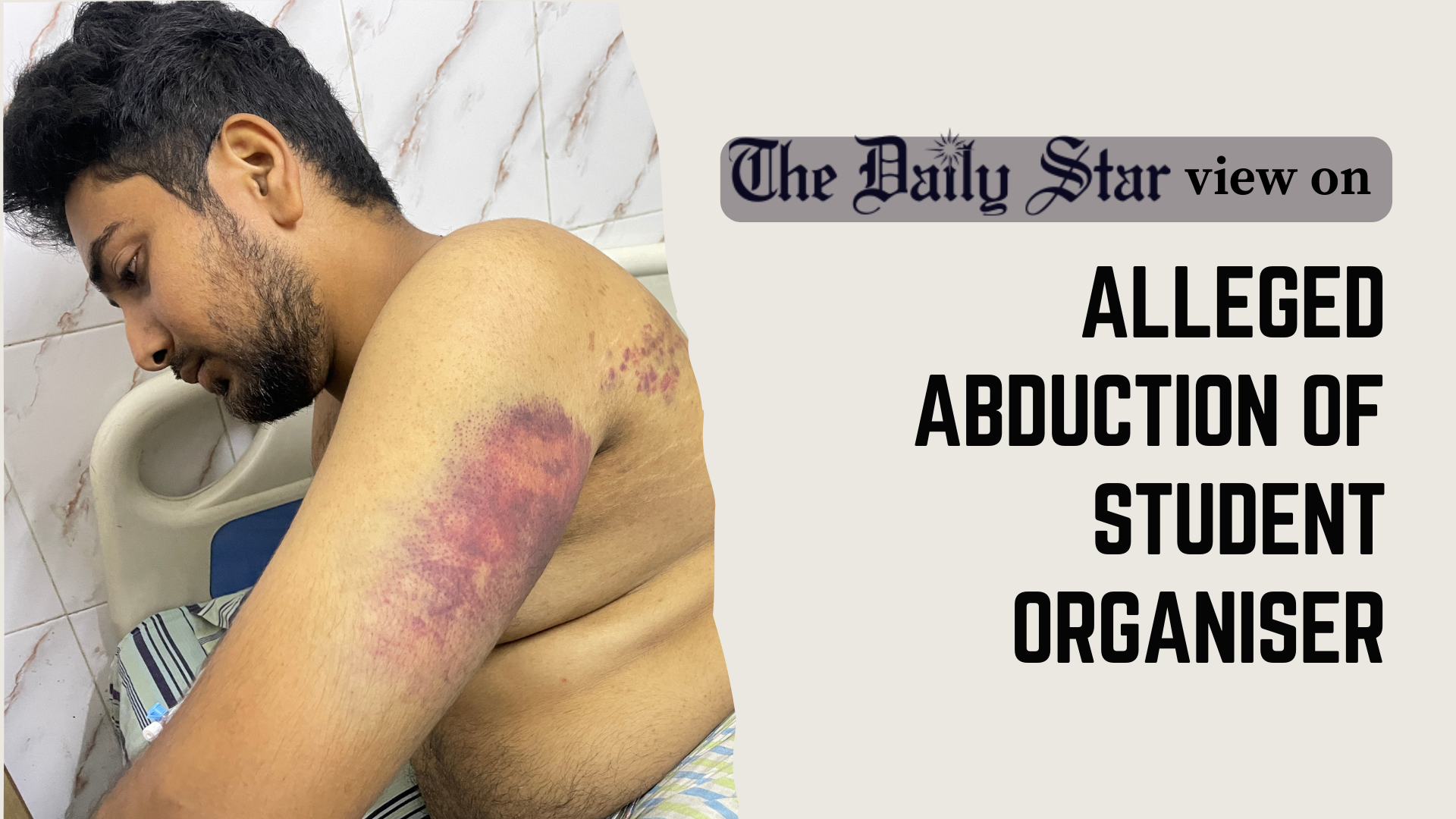A sad day for the nation

No words are enough to adequately describe our shock and pain at the heavy casualties that occurred on Thursday, as a "complete shutdown" announced by the anti-quota protesters degenerated into a complete breakdown of law and order across the country. As of writing this editorial, at least 19 people, mostly students, were killed while many hundreds were injured during violent clashes between the protesters and members of security forces and Awami League-affiliated groups. The overall death toll in the ongoing quota movement, counting the six that died on Tuesday, now stands at 25. The severity of the protests—which continued well into Thursday night—can be understood from the fact that more than 2,500 were injured nationwide, a number of them suffering from shotgun wounds.
So much loss and suffering for a cause that any other country with a reasonable socio-economic ambition would have addressed proactively for its own benefit. This shows the growing disconnect between the students' aspirations and that of the ruling establishment. Could Thursday's tragedy have been avoided? The way protesting students were treated until then—frequently disregarded, disparaged, and finally driven off their campuses and dormitories—did indeed create the chance for any face-to-face confrontation with the security forces to turn violent. And it did. But the authorities must bear the responsibility for the escalation as it seems to have lost any ability to engage with protesters on the streets without resorting to force. Video footages from various thoroughfares and intersections showed scenes for which an apt description ethereal. There were indiscriminate beatings and shootings. Many public properties, offices, and vehicles were vandalised or set on fire. It was like a nightmare through and through.
This is why the government's offer on Thursday afternoon to sit with the students to discuss quota reforms was seen by many as more of an olive branch offering rather than a substantive approach. And they have their reasons. For instance, what took the government so long to make this approach? Why did it use so much force if it was "principally" in favour of quota reforms? Why did it continue to do so even after making the offer? Most importantly, who will take responsibility for all the deaths and sufferings that has ensued over the past four days? Clearly, the government could have avoided all the bloodbath and resultant crisis of faith by handling the situation a lot better, and more peacefully.
Right now, the priority is to raise confidence among the students about the government's sincerity. And words alone will not do that. To really build their confidence, the students will need concrete assurances that there will be no legal persecutions against them, that those responsible for the violence and instigation of violence will be brought to book, and that there will be proper reforms in the government job quota system. The students are right to worry, seeing how past attempts have failed to resolve the quota issue, particularly during the 2018 movement. Without a genuine effort on the government's part—but also on the part of the students to reciprocate, considering public interest—there is no guarantee that this issue will be resolved for good. We do not want to see any more violence and loss of lives.



 For all latest news, follow The Daily Star's Google News channel.
For all latest news, follow The Daily Star's Google News channel. 

Comments